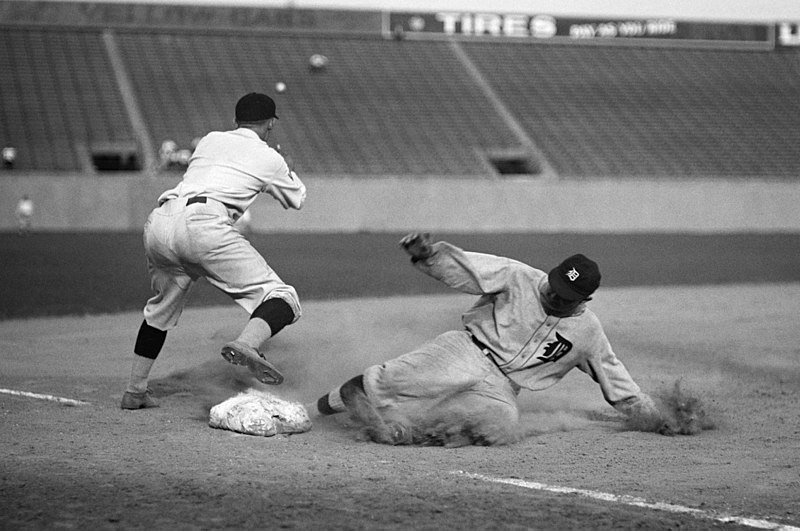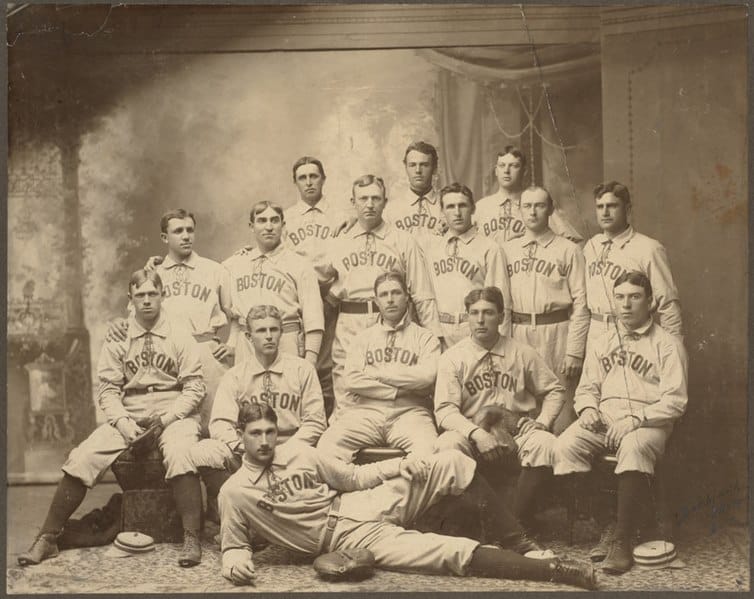Until the 1950s, Major League Baseball was confined to the Northeast quadrant of the United States. MLB went no further west than the Mississippi River at St. Louis. Its southern boundary was at Cincinnati, on the Ohio River. Boston, St. Louis, Philadelphia, and Chicago had two major league teams, one playing in each league. New York had three, with the Brooklyn Dodgers (National League) joining the Giants and the Yankees. West of the Mississippi and south of the Ohio countless leagues, both professional and amateur, offered baseball to fans in small towns and larger cities. But the heroes of baseball, Cy Young, Ty Cobb, Joe Jackson, Babe Ruth, and countless other icons, played in a geographically limited area. Only during the late winter and early spring did they appear in games in the South and West, exhibitions played during spring training.

Yet Major League Baseball dominated the sports pages of the spring, summer, and especially in the fall. During early autumn baseball crowned its champion, after a contest which is called the World Series. A best of nine, later reduced to seven, game series played in the daytime over nearly two weeks held the nation’s attention. Professional football was an afterthought, college football would peak later in the calendar. When baseball played its World Series fans across the country, even those far removed from the cities forming the two Major Leagues, followed it with rapt attention. Absenteeism at work and schools soared as fans absorbed the games. Before radio, they gathered near the offices of their local newspapers to follow the games via telegraph reports. Later they listened on radio, and still later watched on television. Here’s the story of a time when the World Series brought America to a standstill.

1. The World Series began just as the United States stepped on the global stage
Depending on the source used, the annual event known as the World Series began in either 1903, 1904, or 1905. At the time, there were two major leagues, with their own offices and administration. The idea of the champion from each league playing each other to determine which was best had been considered earlier. The leagues were enemies until 1903. There was no office of the Commissioner of Baseball. Nonetheless, the leagues, American and National, played under the same rules, using the same equipment, for the most part. In 1903, the two league champions agreed to play a best of nine games series to determine which would bear the title of World Champion. Such title seems presumptuous since major league plays limited itself to just a portion of the United States. Yet it was in keeping with the times. America had just come to consider itself a world power.
Only a few years earlier the United States had successfully fought a war with Spain. The US Navy had won major victories against the Spanish in Cuba and the Philippines. Since that war, the fleet participated in naval reviews around the world. America held overseas possessions, creating an empire in all but name. Arizona was not yet a state of the Union (statehood came in 1912) yet the United States was a global player, standing with the British Empire, the German Reich of the Kaiser, and the other world powers to influence events. So, the champion of its national game of baseball was clearly (to Americans) also the champion of the world. In 1903, the Boston Americans (forerunner of the Red Sox) and the Pittsburgh Pirates played, at the latter’s invitation, to determine who could claim the title of World Champion. It was the first World Series of the modern era.

